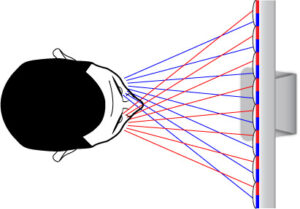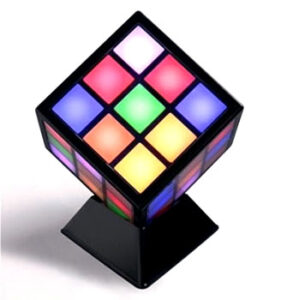My university recently had an entire newspaper dedicated to the “battle” between Macs and PCs. I must say that I had some qualms with a few of their points, as-well with the overall message that the newspaper delivered. I was going to write a letter to the editor and explain how I felt, however, the time has passed, therefore I shall write about it here.
One recent “study” that PC users are all too eager to talk about is that of a personality profiling of Mac users the shows that they are “more liberal, less modest, and more assured of their own superiority than the population at large.” In addition, the “survey” indicates that Apple users have high indexes for “low modesty,” “high perfectionism,” and “high superiority,” and low indexes for things like “humility,” and “self esteem.” What they forget to mention is where this sample of 7,500 individuals was collected. All of these individuals were tested at the Macworld San Francisco Expo. May I remind people that the tickets to that event can run about as much as $1600.00 (or more), more than my MacBook costs. So, what does that tell us about the people in attendance? I think we can safely say that not all Mac users can be put into the same category as those who were profiled! I certainly couldn’t fit in. I can’t afford to go!
Another aspect of these articles presented in my school’s newspaper that didn’t agree with me was that of their choice of selection of interviewees for the Macintosh platform. Back in the MacOS 7 days the Macintosh community had a smaller market share and there were fewer Mac Users. This created a feeling of unity and brotherhood amongst those few who owned and loved their Macs. Whenever one Mac user would meet another, an instant friendship became. With the ever-growing popularity of the Macintosh platform, this feeling of brotherhood has slowly disintegrated. Having a Mac now-a-days is practically a fad or trendy. Many of the users aren’t hard-core but rather buy them because “they’re pretty,” or “my daddy bought it for me…” These types of people were interviewed and asked why they preferred Macs. No intelligible answers were made. Surprise.
For myself, there are several reasons that the Macintosh platform appeals to me. For starters is the lifetime of the products. I have several computer that are quite old that continue to work. That doesn’t mean that I haven’t upgraded in order to have a newer machine, however my first G4, which was purchased in 2001 (used) is still capable of running the most current OS, Leopard. It’s quite snappy too. Apple is known for supporting products for a minimum of 5 years, which is more than the average person would use a computer without upgrading.
Apple continues support for legacy products for a long time, creating smooth transitions. When Apple was about to make the jump from Mac OS 9 to Mac OS X, the thought of losing all of my current applications made me uneasy, however Apple kindly created a method of keeping legacy applications running through a layer of emulation called “Classic.” This classic support lasted for 7 years through OS X Tiger. Apple also recently made the transition from Motorola based CPUs to Intel. This change in architecture required the recompiling of applications and also numerous tweaks for existing applications to work. Once again Apple provided a layer of emulation called “Rosetta” which enabled applications compiled for Motorola processors to continue to work. This seamless integration allowed for smooth transitions. I never had any hiccups along the way.
Another reason I like to use Apple’s systems is that the hardware and software is designed by the same company. The hardware never has driver issues. All the drivers are built into the system and maintained by Apple, and updated whenever needed. There is just one DVD to install the system. Nothing beyond that initial installation is required to gain full access to the computers capabilities. Many printer drivers are already supplied. Both of my HP printers plugged in and printed without installation of any kind. It’s this integration that appeals so much to me.
Another reason I like the Mac OS is the organization of files (especially system files). Apple has a very clean way of placing files in places that make sense. Nothing hidden or tricky. It’s just all there. Applications are contained in files called packages which are just containers with all the unsightly extra files inside like support files etc. Nothing bugs me more than installing a program and having 20 files that they don’t want me to touch along side with my application that I want. I think this organization has made for a better looking more straightforward interface.
Lastly, I very much like the way Apple allows for multi-tasking. I like that windows don’t automatically take up the whole screen, that it is easy to switch between applications with features like exposé and spaces, and that items in the dock give a graphical preview, (which is live I might add), of the programs running. Obviously Vista now has many of these features, but I like and am used to Apples implementation, which I have been enjoying for many years.
My last point I’d like to touch on is rather the question, “why must these operating systems be put to battle?” I mean honestly, is one better than the other? The answer cannot be made clean cut and dry. It all boils down to one’s opinion. As for myself, I prefer the Macintosh philosophy in organization and presentation as I have previously discussed. It better suites me, and the things for which I like to use a computer. I like running Adobe software, and doing those creative things that Macs are known for. I don’t however look down on or hate people who find PCs to be the more productive machines for what they like to do. I don’t know why people always pit their opinions against each other. It just seems so childish to me. I do like to joke with friends about getting Macs or what-not, but in all reality they know, or at least I hope the know, that their personal choice for computing platform doesn’t change my opinion or friendship with them.



